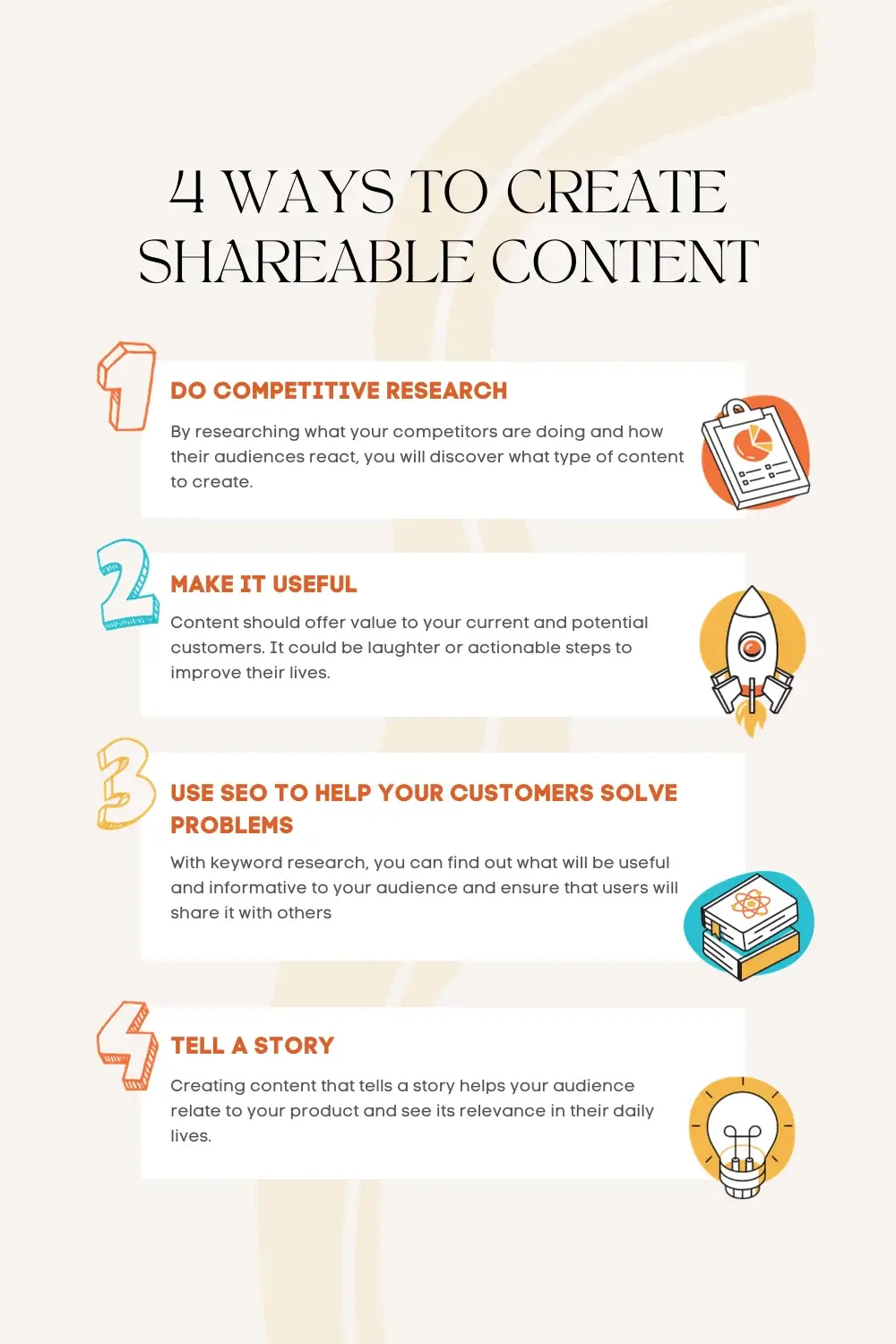Are you tired of generic marketing that misses its target audience? Try niche marketing. This highly targeted strategy focuses on reaching a specific segment of the market with strong potential to connect with your product or service. In this post, we cover the basics of niche marketing, including identifying your target audience, strategies for reaching them, and the benefits for both small and large companies. For more tips on marketing strategy, see our marketing guide for small businesses.

The following niche marketing strategies with examples will help you stand out:
Niche Marketing Strategies and Examples
1. Organic baby products for new parents
- Research the market to understand new parents’ needs and preferences.
- Use targeted collateral campaigns, like brochures or videos, to highlight product features and benefits.
- Partner with trusted parenting influencers, such as pediatricians, to increase credibility and visibility. For parenting business tips, see our [parenting products marketing strategies](https://vitahaute.com/parenting-products-marketing).
2. Artisanal cheese for foodies
- Research the market to understand foodies’ needs and preferences.
- Use word-of-mouth campaigns to encourage satisfied customers to spread the word.
- Create targeted marketing materials, like unique cheese recipes, to appeal to foodies interested in unique cooking experiences. See our [food and lifestyle business ideas](https://vitahaute.com/food-lifestyle-business-ideas).
3. Handmade jewelry for fashion-conscious consumers
- Research the market to understand fashion-conscious consumers’ needs and preferences.
- Use targeted collateral campaigns, like videos or galleries, to showcase the unique and sustainable aspects of your jewelry.
- Partner with trusted fashion influencers, such as designers or bloggers, to increase credibility and visibility. Check our [fashion business marketing tips](https://vitahaute.com/fashion-business-marketing-tips).
Why Niche Marketing Works
Niche marketing targets specific groups of people with a high likelihood of purchasing your product or service. By focusing on characteristics, interests, professions, or beliefs, you can offer products or services tailored to their needs. This targeted approach often leads to higher conversion rates, customer loyalty, and brand recognition.
Niche marketing allows companies to stand out in a crowded market and connect with interested consumers, strengthening brand recognition and customer relationships. For more on improving customer loyalty, see [how to build customer trust](https://vitahaute.com/build-customer-trust).
Key Benefits of Niche Marketing
Higher Conversion Rates
Targeted messaging resonates more with a well-defined audience, increasing conversion rates.
Higher Customer Loyalty
Niche audiences are often passionate about their interests, leading to greater loyalty and repeat business.
Lower Marketing Costs
Focusing on a specific audience reduces wasted advertising spend on uninterested consumers.
Increased Brand Recognition
Being the go-to provider in a niche strengthens your brand’s reputation and makes it easier to attract new customers. Learn more in our [branding tips for small businesses](https://vitahaute.com/branding-tips-small-business).
Drawbacks of Niche Marketing
Niche marketing also has limitations. A smaller target audience may restrict growth potential. It can be more costly and time-consuming due to the research required to understand a niche audience. Limited product or service offerings may hinder your ability to compete with larger companies, and market changes can significantly impact a niche-focused business.
Niche Marketing and SEO
Search engine optimization is essential for reaching your niche audience. Optimize your content, website, and online presence with relevant keywords and regularly update your content to improve visibility in search engines like Google. For more details, see our [SEO strategies for niche businesses](https://vitahaute.com/seo-strategies-niche-businesses).
Niche Marketing for Small and Large Companies
Both small and large companies can benefit from niche marketing. Small companies can leverage their expertise to compete with larger competitors, while large companies can focus on specific market segments to reduce marketing costs, increase loyalty, and strengthen brand recognition.
How to Stand Out in Niche Marketing
– Understand your target audience, their pain points, and aspirations.
– Conduct market research to identify gaps your brand can fill.
– Craft a compelling brand story highlighting your unique selling points.
– Build relationships through high-quality content, social media, and engagement.
– Collaborate with influencers or complementary brands.
– Deliver exceptional customer experiences and personalized service.
Establish yourself as a trusted authority in your niche, and you will attract loyal followers and gain credibility. For actionable tips, see [how to grow your business blog](https://vitahaute.com/grow-business-blog).
How to Develop a Niche Marketing Plan
– Identify habits and preferences of your target consumers using surveys, analytics, and focus groups.
– Implement word-of-mouth and trusted-messenger campaigns to leverage credibility.
– Use targeted collateral campaigns, like brochures or videos, to communicate directly with your audience.
– Develop a strategy tailored to your niche to stand out and connect meaningfully with consumers.
Conclusion
Niche marketing allows businesses to target specific market segments and connect with ideal customers. By understanding your audience and tailoring your marketing efforts, you can achieve higher conversion rates, increased loyalty, lower costs, and stronger brand recognition. Focus on unique positioning, valuable content, strategic collaborations, and exceptional customer experiences to differentiate your brand and drive growth. For more marketing insights, visit [Vitahaute’s business strategies](https://vitahaute.com/business-strategies).


I’m an entrepreneur and digital marketing enthusiast who loves helping people grow—not just in affiliate marketing, but in all areas of online business. I enjoy showing others how to build a strong brand, create meaningful content, and use tools that make work easier. Over the years, I’ve learned what truly works in digital marketing, from creating websites that convert to building an engaged audience through email and social media. After more than ten years in the field, I’ve gathered plenty of lessons I enjoy sharing through my writing and talks. I use my own experiences to help others reach their goals and build something lasting. Besides running my business, I’m a fiction writer in the speculative genre, with dozens of short stories published in various magazines and anthologies. For eighteen years, I was a Top Reviewer at Zoetrope, an online venue for creatives, where I helped members strengthen their writing. When I’m not working as a writer or marketer, you’ll probably find me cooking, reading, or watching a good baseball game. I live in New York City, where I was born and raised.